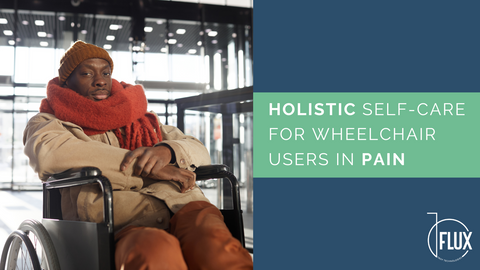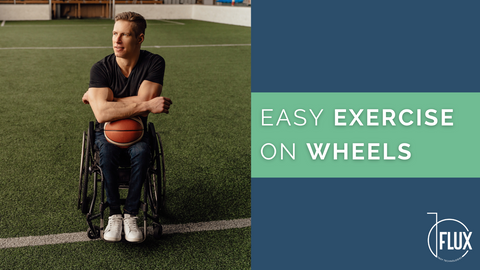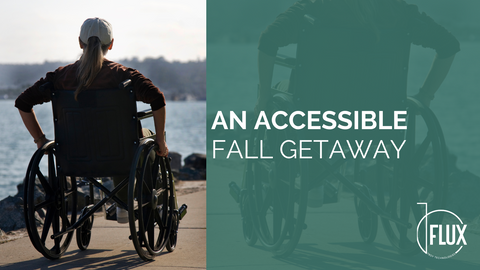Though many people who use wheelchairs do so because of pain issues, the wheelchair doesn’t miraculously make the pain go away. In fact, in some aspects of life, the pain can be worse once a wheelchair is introduced. Pain is tricky because it means different things to different people and it is 100% subjective. This means no one can look at you and truly know how much pain you are experiencing. This creates a cruel stigma around those with chronic pain that can be very isolating. And that’s just talking about physical pain! Emotional pain is equally real, equally valid, and often entirely overlooked.
Well, we don’t want to overlook any of it! Pain can be one of the most emotionally draining, socially isolating, and heavy things a person can deal with. We can’t fix your pain, but we can do some things. We can always be fierce allies to the differently-abled community! We can make one of the most affordable electric wheelchairs on the market so you can get around without strain! We can always be understanding if you need to cancel brunch because of a Fibromyalgia flare-up! And we can come up with some awesome self-care tips, as well as offer gentle encouragement for you to honor your needs.
Honoring your needs looks different for everyone, but every person on the planet could benefit from these self-care suggestions. You may have tried lots of different forms of self-care in the past and it never seemed to make a difference in your pain. But pain is complicated. Like *really* complicated- here’s a cool video on the science of pain if you’re curious! So the notion that a hot bath is going to fix everything is a little crazy. Since pain affects us physically, mentally-emotionally, and socially, maybe we should take care of each of those aspects. This is called a holistic approach. You can’t separate each aspect of human experience, it’s all connected and important. So that’s why we put together a holistic list of self-care ideas, organized by each aspect of human experience.
**As with any of our suggestions, it is extremely important for you to discuss changes to your wellness practice with your doctor and physical therapist**
PHYSICAL-
We are starting with the physical aspect, not because it’s the most important, but because it’s the easiest for most people to do. So our tips for physical self-care are:
Movement- this is essential for feeling good in your body. If you missed our recent blog about it, you can check it out here for exercise routines. Stretching also goes in this category- here’s a great video of stretches.
Massage- Professional, from a partner, or self… massage is one of the most powerful relievers of pain. There are hundreds of self-massage tools on the market and each one is better suited for different body parts. Take the time to do some research and find the right tool for you. Consistency is key here, so finding a way to integrate massage daily will bring the most benefits.
Heat/cold therapy- Using heat and cold to help with pain seems obvious, but what some people don’t realize is that there's more to it than just sitting on a heating pad (not recommended, by the way). Ask your doctor first, but let’s say ice doesn’t work for you… try heat and vice versa. Or! If neither works, try combining them. Try heat for 10 minutes and then use the ice. Every body is different, and using a little trickery like that could make huge changes in efficacy.
MENTAL/EMOTIONAL-
Sometimes the mental/emotional aspect of the human experience can be challenging to open up about. And that’s part of the problem! Considering the huge role our mental state plays on pain perception in the body, this is an important topic when discussing self-care for pain management. So let’s talk about some ways you can take care of this very important aspect of you.
Meditation/Breathwork- to put it simply- meditation and breathwork can lower cortisol and lowering cortisol can lower pain. The benefits far exceed just lowering cortisol, but for the sake of brevity, we will leave it there and link to this Mayo Clinic article on meditation.
Counseling- remember how we talked about how pain affects every aspect of your life? That’s why counseling can be valuable. It can give you tools for communicating with friends and family as well as help you to process those relationships. It can also help with the pain itself, check out how in this article. Plus, a counselor is on your side no matter what, and we all need as many people in our corner as we can get.
Spiritual Work- we aren’t here to tell you how/to whom/where to pray, or even that you need to pray. But having a spiritual practice is being shown to help with pain management- read about it here. Whether it’s gratitude journaling, going to church, or communing with nature, having a connection to something greater than yourself can be extremely uplifting and can help prevent feelings of loneliness.
SOCIAL-
The social aspect of life can be a real doozy for those new to life in a wheelchair and/or those who struggle with chronic pain. Being in a wheelchair makes it hard to do things and so does being in pain, and unfortunately, that means relationships sometimes suffer. Our narrow wheelchairs can help because they are designed to fit more places and navigate better than the average chair. This can allow you to go out and do things with friends and also can help you feel more independent. But even if you don’t have one of our wheelchairs, that doesn’t mean you have to be/feel alone all the time. So here are some tips to help you stay connected to people.
Phone Dates- it feels like no one talks on the phone anymore, but it’s mostly because the culture around talking on the phone has changed. Just like it’s no longer socially acceptable to simply show up at someone’s house to say “hi,” it’s no longer super acceptable to just randomly call to talk. But your friends and family do want to talk to you, promise. So try setting up a phone date, an agreed-upon date and time to catch up.
Make a list of things you CAN do- Seems simple, but having a running list of activities you can do comfortably will make communicating with friends and family easier. And you might surprise yourself with how many things you CAN do.
Facebook Groups- if you’re feeling alone in your diagnosis or pain, that’s pretty normal. But I can almost guarantee that you are not alone. There are Facebook support groups for every single condition under the sun. You can join a group of others experiencing the same thing from all over the world.
Counseling- Yup. This one again- because it’s important. If you are feeling like a burden because your partner is now your caregiver, you need professional support to help remind you of your value. If your feelings of isolation are ever-present, even when you are playing with your grandkids, you need professional support. Chronic pain is big heavy burden, and you don’t have to carry it alone.
The goal here is not to bombard you with a million more things for your daily to-do list. We just want to give you some options so that, “take care of yourself” doesn’t feel so ambiguous. We want our readers to understand that self-care isn’t just a bath or just therapy. Self-care needs to encompass the whole self because all of you is important.




